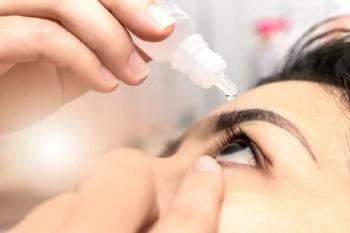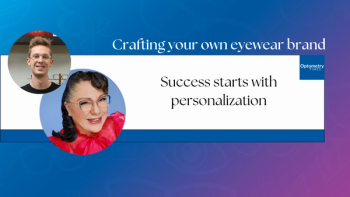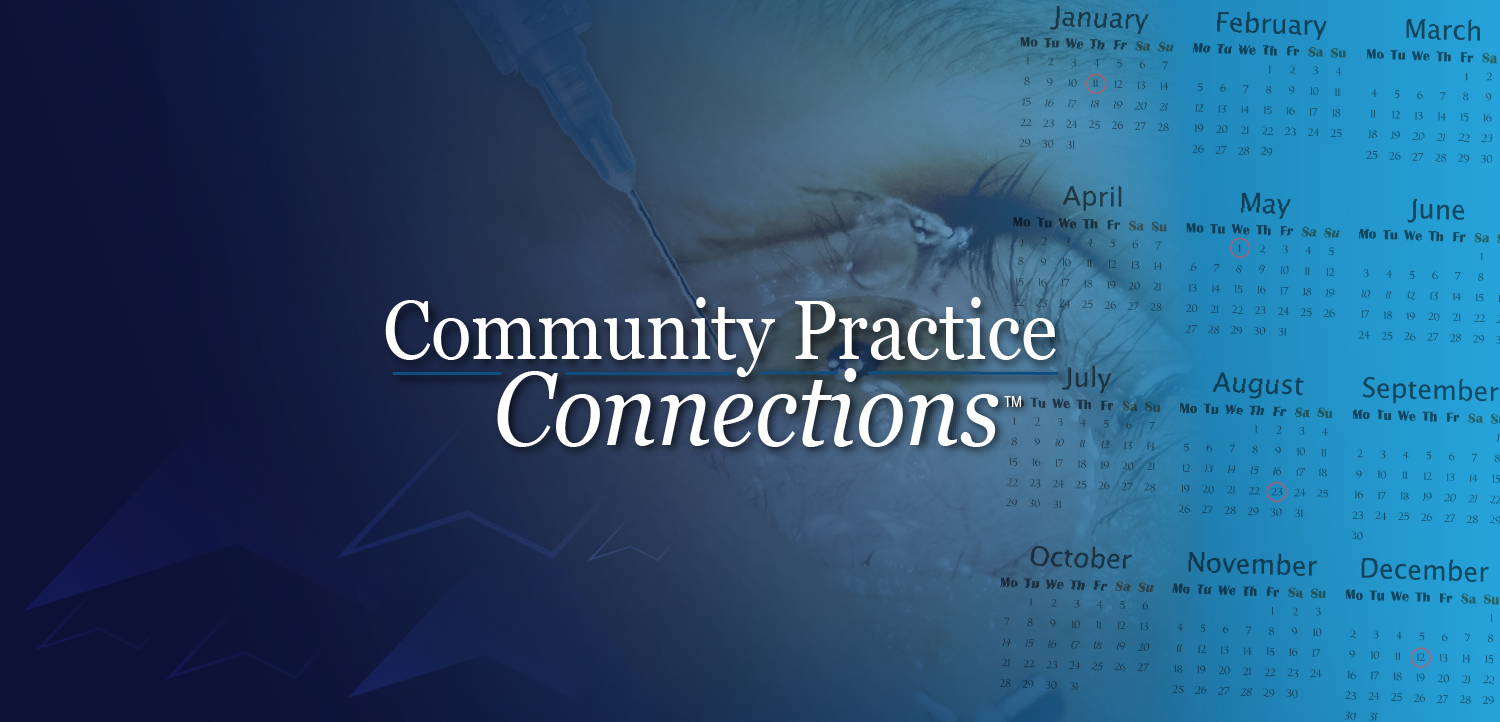
AOA fights back against 1-800 CONTACTS-backed state legislation
The American Optometric Association (AOA) recently updated several state associations on legislation which is backed by online contact lens retailer 1-800 CONTACTS.
Washington, DC-The
“The AOA believes that the announced goal of blocking UPP is part of a larger effort to misrepresent how ODs provide care for patients and, ultimately, to prohibit patients from obtaining
According to the AOA, these bills are in the works in Arizona, California, Florida, Idaho, Illinois, Louisiana, Minnesota, Mississippi, New York, Oregon, Rhode Island, Tennessee, Utah, and Washington.
“Some individuals connected to 1-800 CONTACTS, Inc. are saying that efforts to undo UPP do not directly relate to the practice of optometry or optometry patients,” the AOA statement reads. “The AOA does not accept these assurances, is opposed to their legislation, and is mobilized to work with state associations to ensure that any and all attacks on optometry receive an immediate response.”
The AOA highlights a number of inaccurate claims made by the bills.
According to the AOA, the bills state that patients do not understand when the exam ends and the retail portion of their visit begins-which, the bills claim, denies the patient the opportunity to shop around and compare prices.
The bills also claim that UPPs were put in place expressly for the benefit of the private practice eyecare provider, citing statements from Johnson & Johnson Vision Care that claimed UPP will improve the retention of patients in the provider office by removing price differentials between other retailers and the private practice doctors.
In addition, the AOA says the bills claim that UPP damages an already anticompetitive contact lens market. According to the statement, the bills frequently claim that ODs write prescriptions for certain brands without justification, prohibiting patients from shopping for different brands or generics-calling into question the ODs' clinical and professional judgment.
“These bills are an unprecedented attack on the doctor-patient relationship, and the state associations and the AOA are fighting back hard against this latest challenge from the online retailers,” says AOA President-elect Steve Loomis, OD, FAAO, speaking exclusively with Optometry Times. “ODs in impacted states should contact their affiliate offices.”
Optometry Times Chief Optometric Editor Ernie Bowling says he strongly disagrees with 1-800 CONTACT's assertions that UPP was put in place for the express benefit of eyecare providers.
"UPP simply levels the retail playing field, and perhaps that is what is so upsetting to them," he says. "Thanks to the AOA for keeping an ever-watchful eye on this issue. Contact lenses are medical devices and are chosen by the practitioner to ensure that the patient's eye health and visual performance are optimal. This is a point that we, as optometrists, cannot stress to our patients often enough, especially in the face of seemingly omnipresent ads from retail sellers."
1-800 CONTACTS responds
1-800 CONTACTS is firm on its stance on UPP, saying that it is not only harmful to market competition but also to patients’ eye health.
“1-800 CONTACTS supports legislation to eliminate UPP practices in the contact lens industry,” says 1-800 CONTACTS Chief Marketing Officer Tim Roush, speaking exclusively with Optometry Times. “UPP, by contact lens manufacturers, is just price-fixing by another name. By setting a minimum price at which their products can be sold, the four contact lens manufacturers that control more than 98 percent of the market are increasing costs for consumers in an effort to influence where contact lenses are purchased. UPP is a relatively new manufacturer initiative, which has no place in an industry where eyecare professionals both prescribe and sell contact lenses, and where the manufacturers brand is on a prescription.
“1-800 CONTACTS’ research confirms prices have increased for a majority of contact lens wearers since UPP was implemented,” Roush says. “In fact, UPP will have a negative impact on eye health care in the U.S. When contact lenses cost more, patients are less likely to change them as frequently as manufacturers recommend."
ODs say AOA’s concerns mirror their own
“The AOA is spot on in recognizing this as an attempt to discredit optometry in the broader effort of the mail-order contact lens seller to portray contact lenses as a commodity and not a medical device,” says
According to Dr. Steinberg, the company does not have a good reputation among eyecare practitioners.
“1-800 CONTACTS has a long history of irresponsibly disregarding patient healthcare concerns by selling lenses without a current prescription, selling a different lens than what was prescribed, and undermining doctor-patient relationships,” says Dr. Steinberg. “Its legislative efforts should be seen for what they are, another attempt to put profits ahead of health care.”
Art Epstein, OD, FAAO, based in Phoenix, says he doesn’t believe 1-800 CONTACTS understands how online contact lens retail affects patients.
“This latest attack from 1-800 CONTACTS is yet one more example of why optometrists need to work cooperatively and cohesively to keep our patients safe and protect our professional integrity,” he says. “I suspect when 1-800 CONTACTS thinks about contact lenses, it think about a commodity and profit margins. When we think about them, we think about patients and their health. The company has never seen a contact lens abuser with half his cornea turned to necrotic mush by a large central ulcer. We have.
“The company is up at night trying to time out the passive verification timer by calling when offices are shut. We’re up at night worrying about patients,” Dr. Epstein says.
Optometry Times Editorial Advisory Board member Pam Miller, OD, FAAO, JD, says her concern with online contact lens retailers is that the prescription will be outdated, the patient may purchase the wrong type of lens, and the patient may not be receiving regular eye care from a professional. She says the AOA is right to be concerned about the bills.
“The issue really is not one of anti-competitiveness, but more critically, one of patient safety,” says Dr. Miller. “It is not unusual to get a fax or phone call after hours requiring verification of an online prescription. If the time deadline is not met, the patient receives the order, regardless of accuracy. Because contact lenses are a medical device requiring a prescription, there is the potential for inherent damage to the patient, which is not a concern of any online supplier.”
There is, of course, a valid reason an OD prescribes a certain brand of lenses, she says. It should be the responsibility of the eyecare professional to determine which lens is best for a patient.
“This is not something that can be left to the patient’s judgment, nor which is based on what is the cheapest,” says Dr. Miller. “When companies fill an expired prescription or substitute lenses, they must also take on the responsibility for any harm or permanent damage that occurs to the patient.”
Overall, Dr. Miller says the AOA has optometrists’ and patients’ best interests in mind by opposing the 1-800 CONTACTS-backed bills.
“The AOA concerns are those of the practitioner,” she says. “We are the ones who are responsible for the ocular health and well-being of our patients. To abrogate that responsibility based on an fallacious argument of anti-competitiveness is simply wrong and harmful to those who depend on our expertise in fitting and monitoring our contact lens patients.”
Industry weighs in
According to Alcon, its limited UPP was put into place to encourage eyecare professionals to invest time learning about innovative contact lens technologies and educating patients about new options.
“Online sellers and mass merchandise stores do not make this same time investment and are able to underprice eyecare professionals on contact lenses,” says Alcon’s Head of U.S. Communications Donna Lorenson, speaking exclusively to Optometry Times. “If eyecare professionals must reduce contact lens prices to compete against online sellers and other discounters, they may be less likely to continue to educate patients about new technology contact lenses as a viable option for vision correction.”
Johnson & Johnson Vision Care implemented UPP on its Acuvue Oasys and 1-Day Acuvue Moist contact lenses last year and says it opposes state legislation that would block those policies.
“Our first responsibility is to the patients we serve,” says Barbara Montresor, vice president of global communications of Johnson & Johnson Vision Care, speaking exclusively Optometry Times. “As a medical device manufacturer, our business decisions will always reflect that responsibility. We are actively opposing state legislative initiatives attempting to block unilateral pricing policies on contact lenses and remain firmly committed to our pricing policy for Acuvue Brand products that has already resulted in reduced prices for the majority of Acuvue wearers.
“Our pricing policy is intended to lower prices and make pricing simpler and more transparent so consumers can make the best purchasing decisions for their contact lenses based on quality, clinical need, and cost,” she says.
Bausch + Lomb and CooperVision were also asked to comment on this story.
What can you do?
The AOA is urging ODs is the affected states to contact their state optometric associations. Below is a list of organizations to contact in states where 1-800 CONTACTS bills are currently pending.
Arizona
•
•
California
•
•
•
Florida
•
•
Idaho
•
•
Illinois
•
•
Louisiana
•
•
Minnesota
•
•
Mississippi
•
•
•
New York
•
•
Oregon
•
•
Rhode Island
•
•
•
Tennessee
•
•
Utah
•
Washington
•
•
•
Newsletter
Want more insights like this? Subscribe to Optometry Times and get clinical pearls and practice tips delivered straight to your inbox.
















































.png)


